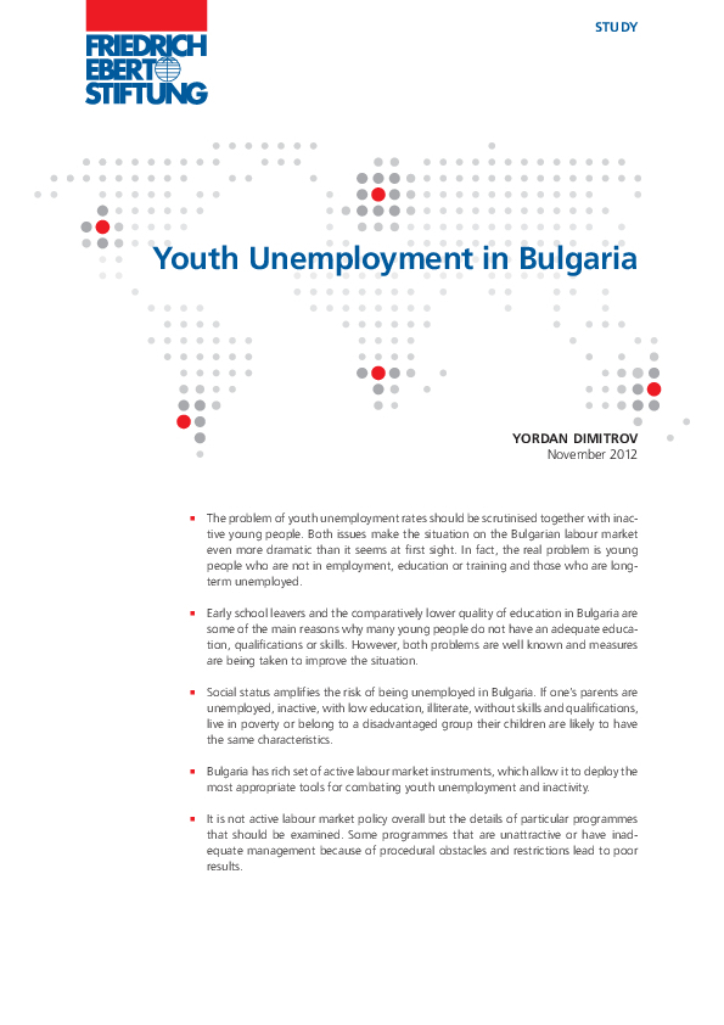Youth Unemployment in Bulgaria
Published on
Abstract
Young people have always been considered a group at the margin of the Bulgarian labour market. They did not manage to escape from this unenviable position even during the 11 consecutive years of economic growth, mainly due to structural constraints, such as insufficient qualifications, skills, experience and social capital. Predictably, young people have suffered a disproportionately severe blow from the recession, leading to exceptionally high levels of unemployment and inactivity and low rates of labour market participation and employment. The economic crisis has added powerful cyclical factors to the structural ones.
The present paper explores the latest developments in the youth situation on the Bulgarian labour market. It focuses on topics such as youth unemployment, employment, inactivity, labour market participation, role of education, demography and economic growth. Young people are analysed in terms of their gender, sex, age, duration of joblessness, social status and the like. The main causes of being unemployed at a young age are also identified and commented on. Additional attention is paid to the main traits of young people in employment. Finally, youth employment policies are presented and their effect on young people is analysed. The paper concludes with some policy recommendations on how to make youth labour market participation easier and more effective.
If not explicitly stated, this paper is based on National Statistical Institute Labour Force Survey (NSI LFS) data. The main target groups are youngsters aged 15-24 and 25- 29. Sometimes, only one of these groups is presented, where no specific differences have been identified.

